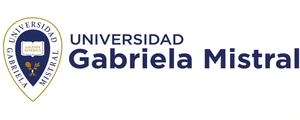Gabriela Mistral University Repository
The Gabriela Mistral University Library has developed the following Academic Repository in order to preserve, disseminate and make available the full-text contents of the academic production developed by the different actors in the academic and research field of the University.
The UGM University at the beginning of the year 2017 incorporated the UCINF University, also adding that collection where we find memories, theses, degree works, academic magazines, speeches, books, digital and sound files. Contact: [email protected]
The UGM University at the beginning of the year 2017 incorporated the UCINF University, also adding that collection where we find memories, theses, degree works, academic magazines, speeches, books, digital and sound files. Contact: [email protected]
Introducción al De Prophetia (De Veritate, q. 12)
| dc.contributor.author | Casanova Guerra, Carlos Augusto | |
| dc.date.accessioned | 2018-04-09T22:34:53Z | |
| dc.date.available | 2018-04-09T22:34:53Z | |
| dc.date.issued | 2016 | |
| dc.identifier.citation | Revista Chilena de Estudios Medievales Número 10, julio- diciembre 2016, pp: 77 - 97 | es_ES |
| dc.identifier.issn | 07192215 | |
| dc.identifier.uri | https://hdl.handle.net/20.500.12743/888 | |
| dc.description.abstract | Este artículo es una introducción a De veritate 12. Resalta algunas de sus enseñanzas más importantes e ilumina con ellas algunos problemas filosófico-teológicos actuales: la comprensión de la Sagrada Escritura como Palabra de Dios; la existencia de la filosofía cristiana; la resolución del conocimiento humano en la experiencia sensible; la predestinación, la presciencia y el libre arbitrio; la relación entre el orden natural y la profecía; y la existencia de dos tipos diversos de “filosofía”, una que ama la verdad divina y otra que la rechaza. | es_ES |
| dc.description.abstract | This paper is an introduction to De veritate 12. It highlights some of its most important teachings and through these teachings illuminates some of the current philosophical-theological problems such as: the understanding of the Holy Scripture as the Word of God; the existence of a Christian philosophy; the resolution of human knowledge into sense experience; predestination, divine foreknowledge and free will; the relationship between natural order and prophecy; and the existence of two diverse kinds of “philosophy”, one which loves divine truth and another which rejects divine truth. | |
| dc.language.iso | es | es_ES |
| dc.publisher | Universidad Gabriela Mistral | es_ES |
| dc.publisher | Centro de Estudios Medievales | |
| dc.rights | Attribution-NoDerivs 3.0 United States | |
| dc.rights.uri | http://creativecommons.org/licenses/by-nd/3.0/us/ | |
| dc.subject | De veritate | es_ES |
| dc.subject | Biblia | es_ES |
| dc.subject | Profecía | es_ES |
| dc.subject | Filosofía | es_ES |
| dc.title | Introducción al De Prophetia (De Veritate, q. 12) | es_ES |
| dc.title.alternative | Introduction to De Prophetia | es_ES |
| dc.type | Article | es_ES |



